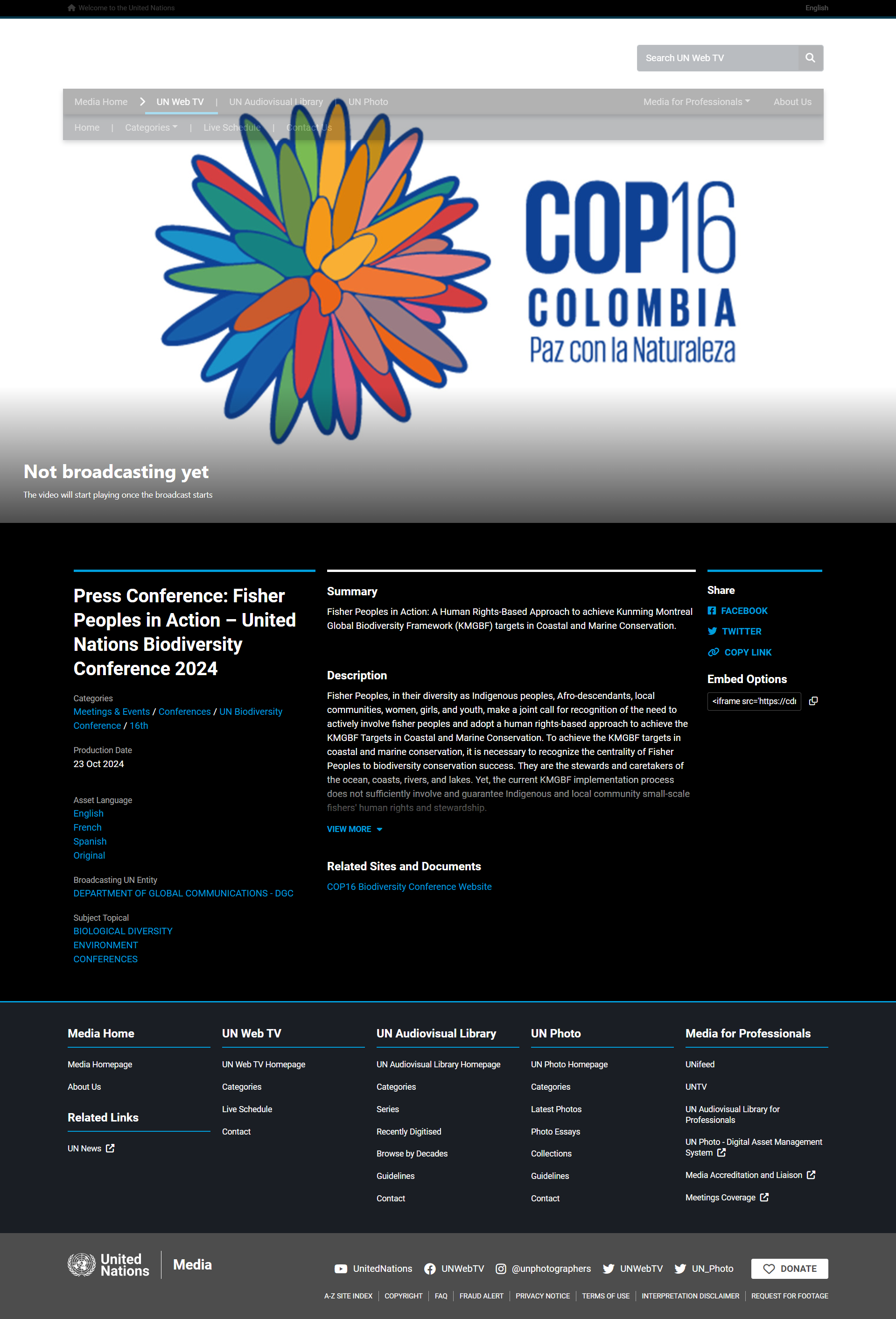
Water covers 70 percent of the Earth. Marine and freshwater environments sustain an abundance of life in its spectacular diversity. Through our history, small-scale fishing communities have interacted and depended on these living resources. A threat to aquatic environments is a danger to artisanal fishers.
Their protection and stewardship are essential to the communities and cultures they sustain. This relationship is a framework to manage conflicts and improve the quality of life and livelihood of small-scale fishers. It was recognized in the UN Convention on Biological Diversity.
Governments increasingly designate marine protected areas (MPAs) for conservation and management. This legal instrument does help but its implementation has raised serious concerns. Target-driven expansion of MPAs is fixated on quantitative goals. This has hit the rights, livelihoods and sustainable use practices of small-scale fishing communities. MPAs—created often in a non-consultative and non-participatory manner—have focused on regulating/restricting their fisheries, failing to recognize their sustainable livelihoods, culture and survival.
It is imperative that protection efforts are grounded in principles of sustainable use. That their processes are inclusive and recognize</b< traditional local systems of knowledge and governance, building upon them. Artisanal fishers must be the frontline of marine biodiversity conservation. There is an urgent need for systematic improvements on all such matters.
A range of ICSF’s initiatives highlight the social and political dimensions of conservation. The importance of livelihoods of poor and vulnerable communities, of their participation and consultation. The co-management of resources by fishing communities, based on a human rights approach to conservation.

Fisher Peoples in Action: A Human Rights-Based Approach to achieve Kunming Montreal Global Biodiversity Framework (KMGBF) targets in Coastal and Marine Conservation. Description: Fisher Peoples, in their diversity as Indigenous peoples, Afro-descendants, local communities, women, girls, and youth, make a joint call for recognition of the need to actively involve fisher peoples and adopt a human rights-based approach to achieve the KMGBF Targets in Coastal and Marine Conservation. To achieve the KMGBF targets in coastal and marine conservation, it is necessary to recognize the centrality of Fisher Peoples to biodiversity conservation success. They are the stewards and caretakers of the ocean, coasts, rivers, and lakes. Yet, the current KMGBF implementation process does not sufficiently involve and guarantee Indigenous and local community small-scale fishers’ human rights and stewardship. For more details, please visit: https://webtv.un.org/en/asset/k15/k15icg47f5
Access to resources, opportunity and choice, power and voice, peace and conflict influence the evolution of poverty and gender roles in a community. These are further impacted by political and...
Recognizing that the rich knowledge held by Indigenous Peoples and local communities (IPLCs) regarding coastal-marine ecosystems is often overlooked in Marine Spatial Planning (MSP), the MSPglobal initiative of the Intergovernmental...
The relatively rapid expansion of protected areas (PAs) has outpaced their effective governance, monitoring, and evaluation processes, resulting in a knowledge gap, particularly in relation to the impact and efficacy...
Protection from direct human impacts can safeguard marine life, yet ocean warming crosses marine protected area boundaries. Here, we test whether protection offers resilience to marine heatwaves from local to...
Marine protected areas (MPAs) are widely used for ocean conservation, yet the relative impacts of various types of MPAs are poorly understood. We estimated impacts on fish biomass from no-take...

Highlights of the Bill The Bill amends the Biological Diversity Act, 2002 to simplify compliance requirements for domestic companies. Users of codified traditional knowledge and AYUSH practitioners will be exempted...
Intergovernmental conference on an international legally binding instrument under the United Nations Convention on the Law of the Sea on the conservation and sustainable use of marine biological diversity of...
Marine Protected Areas (MPAs) in South Africa have a long history with currently 5% of the mainland’s ocean territory protected. The MPAs are celebrated and appreciated for their representative coverage...
Intergovernmental conference on an international legally binding instrument under the United Nations Convention on the Law of the Sea on the conservation and sustainable use of marine biological diversity of...
Illuminating Hidden Harvests: the contributions of small-scale fisheries to sustainable development (hereinafter IHH) is a global study uncovering the contributions and impacts of small-scale fisheries through a multidisciplinary approach to...